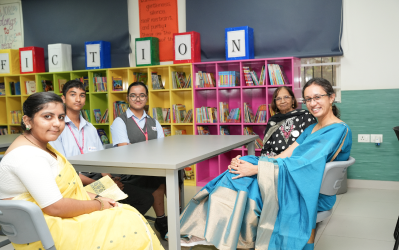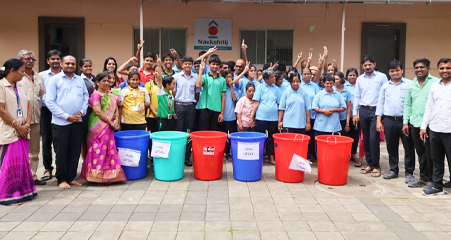We’re on your favourite socials!
We’re on your favourite socials!
As per the ACT 2008 research, middle school is a defining point in a student’s educational progress. Our middle school curriculum supports their development by enabling them to explore and understand the world beyond academic books. At CWS, we aid them in developing 21st-century skills such as critical and problem-solving, which efficiently prepares them for their transition to the secondary school stage.
Crimson World School recognizes that middle years is a critical time for student’s social emotional development. Further, multiple researches have also indicated how during these years the notion of ‘lifelong learning’ can be instilled in students. While developing and enhancing student agency (Student voice and choice), we ensure that our student’s thoughts, ideas and opinions are heard and considered which in turn provides them with a sense of belonging and ownership within the school community.

Students study six core subject areas:

We instruct students to develop positive relationships, enhance their confidence and maintain their self-esteem.
We use different learning strategies to challenge gifted students while including children with learning difficulties – thus fostering an inclusive culture.
We undertake community service initiatives to develop compassion and empathy in our students.
At CWS, we encourage interdisciplinary projects (involving multiple art forms) that allow students to apply their understanding to the real world. We use advanced technology to design student-friendly assignments that have open approaches to the correct answers. We support our students in becoming self-thinkers as they apply their knowledge in multiple ways.


Technology is a key enabler in the delivery of our educational program in this section. We are a registered Microsoft School and use MS Teams for our virtual teaching-learning.
Teachers also facilitate and aid in developing our student’s digital literacy skills to ensure they can engage with technology in a safe, ethical and responsible manner.
Here, our assessment approach measures student learning in key areas in formative, self, peer and summative evaluations. The formative assessment assesses the students’ understanding of the topic, while the summative assessment checks how well they have learnt at the end of the concept.
Peer- and self-assessments understand what the students have learnt during their lessons, by independently evaluating their own and peer’s progress with confidence.

